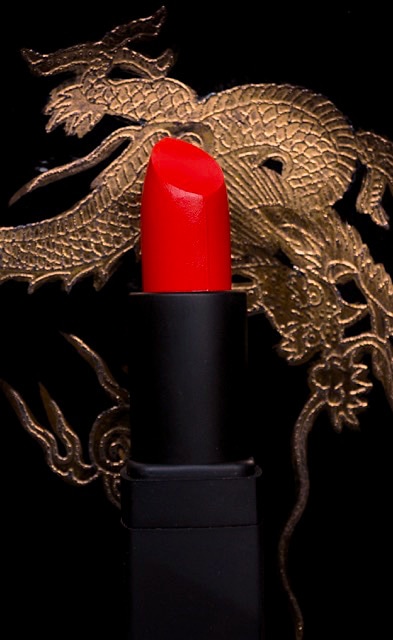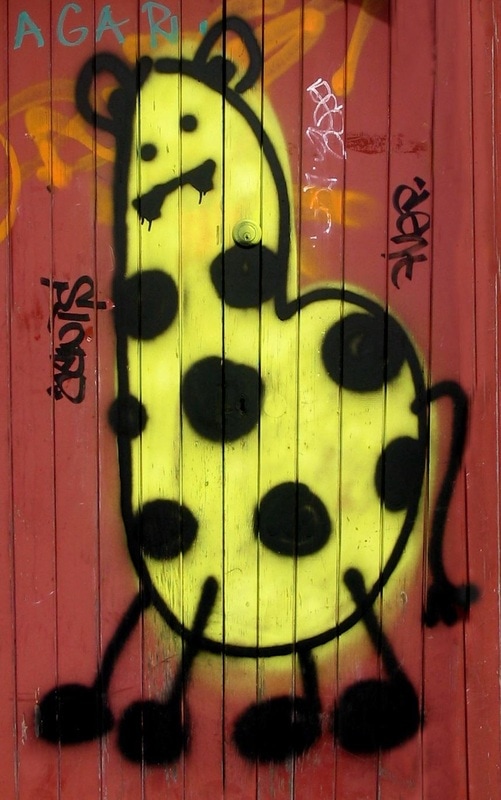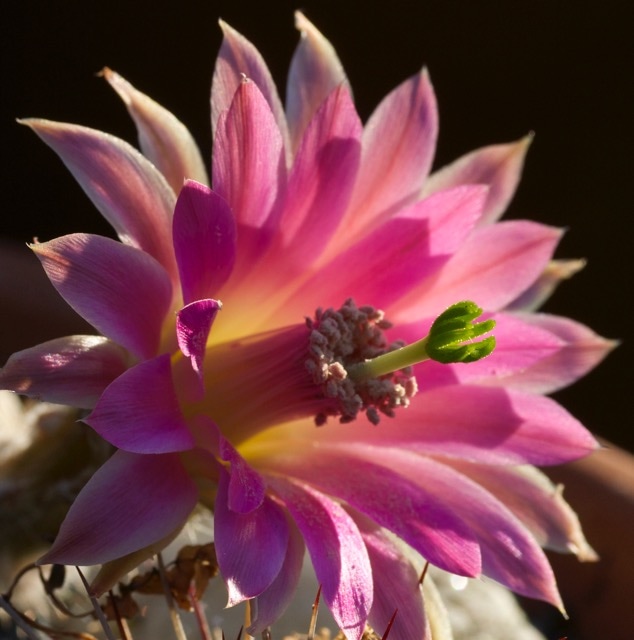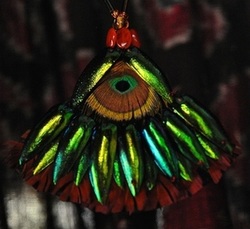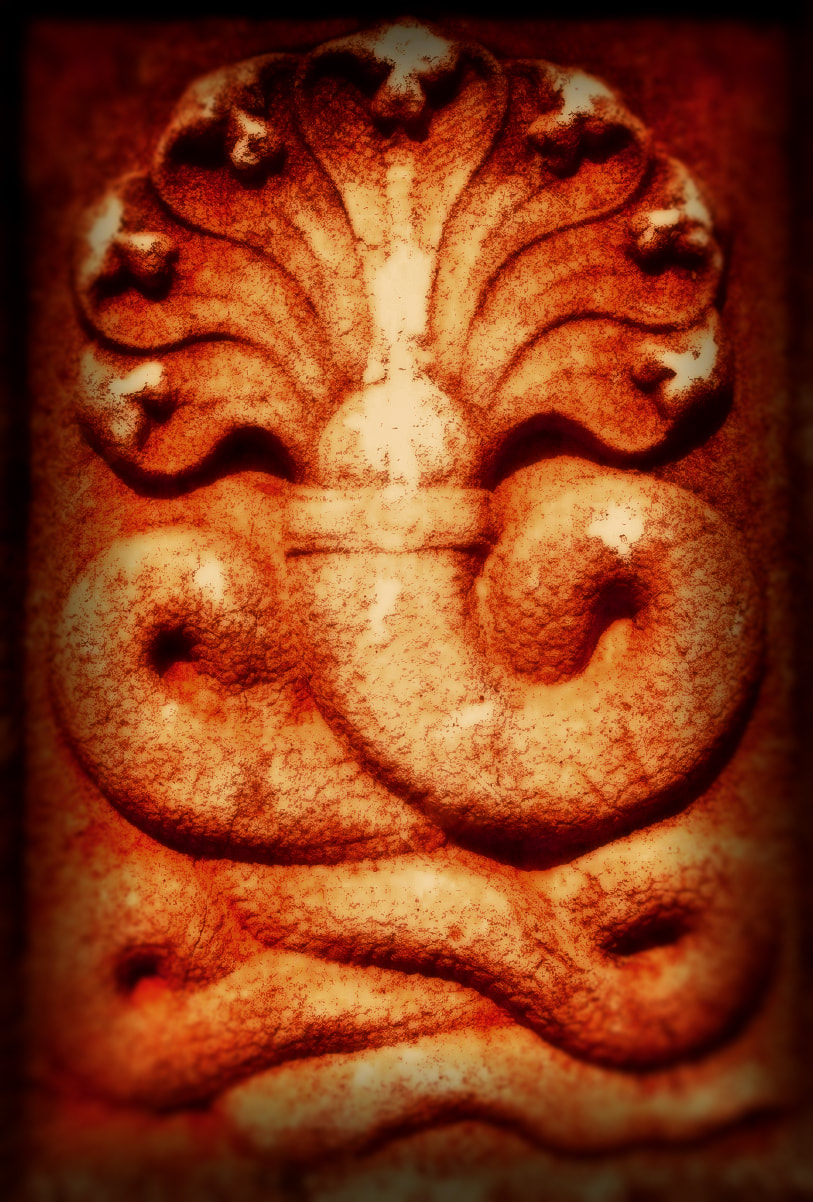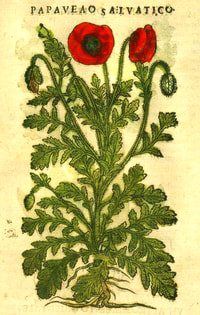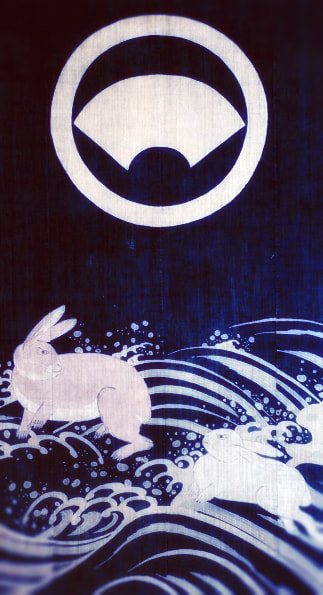
When no one would face him outside the compulsion of battle, he was sent to the valley of Sekigahara to assist in implementing his patron’s martial will. Back in the capital his accomplishments, bleached black and white in reportage, lodged like frozen stones inside the hearts of those that might have rejoiced in any other hero. On his return, Kala'amātya reviewed his instinctive distaste for armour, bound his long hair into the queue of his newly-awarded station and redoubled his reputation for saturnine eccentricity by commissioning a pair of long odachi in place of the suite of smaller swords that were expected of him. His choice was deemed an unseemly departure, though this disapprobation remained a private thing.
It was on an evening late in summer that Ieyasu Tokogawa resolved to embark upon an inspection of the barracks grouped around his palace. The prunus trees cast wide circles of deeper shade beneath the horned moon as he strolled through the grounds, accompanied by a pair of silent guards. With his pale coif, liver marked brow and plain grey robe he commanded little attention; the sound of the neatly-tended gravel beneath his feet was all the fanfare that his mood required.
The sight of the rectangular barracks had always pleased him. The shutters glowed from within the largest structure and the shogun abandoned his guards to listen for a while to the talk that issued from within the crowded mess. Its samurai debated a single and apparently implacable concern; Tokogawa announced himself before the sliding door and stepped inside, blinking in the lamplight as the men pressed their foreheads to the floor.
“What is this?” he demanded, taking a seat at the head of the narrow room, easing himself down onto the matting slowly. “Do not whisper behind your sleeves, like women.”
The eldest warrior inclined his head respectfully, eyes on the ground as he replied.
“We are made cowards by portent.”
“What portents are these? What was my victory at Osaka, if you do not call it providence?”
“What troubles us wore the mon of our great lord into that battle, while holding secrets in its heart, like a thief, using honour as a shield against honest gazes.” the general admitted. The samurai awaited his response in silence.
“Of whom do you speak?”
“The nameless one.” the elder replied, grim-faced. Tokogawa’s scowl deepened with his umbrage at the pusillanimous nature of the allusion. He squinted hard at their self-appointed representative, who had begun to regret his own outspoken impulse.
“You know that I have made this barbarian a general. Remember, how the road to Kyoto was lined with skulls from end to end... so many of them were taken by him alone that the captains could make no count of them. He came to me, his armour painted with the blood of my enemies, as though he had burst forth from the lakes of hell, his face and hands, all wet with this most precious colour. He kills, not for pleasure, not for the thought of land or great advancement, but for Tokogawa. In all of this, he paused only to clean his swords, and receive my orders.” The white-robed men listened without speaking. He continued, his gaze moving slowly over their faces. “It is said that a warrior must have ninjo, kindness... this is the feeling of our ancestors, and I cannot question their wisdom. But it is my thought that sympathy should rest with old women and monks, where it can do no harm. You fear this creature because he does not share your weakness. He is a stone, blind and deaf to mercy. This is what I would have on the side of Tokogawa.”
“Great father, it is well known that yōkai have such cunning in war. We have heard that it will accept no payment for its service. Our wives and daughters are corrupted, shamed and dishonoured by their weakness, in their curiosity... the monster spends more hours in idleness with them than with the sword. The creature debauches women of your own house! If these are not the ways of a devil, they are the acts of a ronin. We beg you to consider these things without anger.” the man insisted, belying the servility of his posture with his petition’s vehemence. “We ask only that you do not speak of our part in this to the nameless one. Its wrath may take a form that bests our swords, leaving us with nothing with which to defend your house.”
Tokogawa stood slowly. A speckled moth circled the lantern, ruining its wings against the paper.
“Better one demon general than a thousand cowards in my service. Men of honour have no insults for those they have not the heart to face.”
Marching stiffly along the narrow, dogwood-shaded way toward the quarter that housed his controversial prodigy, the old man muttered his impatience at his aging legs; no light shone from within the hut and he frowned about it in the shadow of the overhanging trees, marking its resident upon a stone bench beneath them. In his hand was a cake of smooth white limestone; he lifted it from the blade of the odachi and sheathed the frightening weapon in deference to his guest. A small idol of blackened bronze stood beside the door of the hut, long arms ending in clenched fists that lay by its sides; its face was not clearly apparent to the shogun as he stooped to peer at its features and he abandoned the attempt and snapped at the guards who lingered on the path. The creature’s black hair hung in a long braid past his shoulders, merging with the gloom behind a face as pale as the whetstone. He offered his visitor a ladle full of water from the stone bowl seated beside him, and the old man accepted.
“I will not trouble you with idle talk.” Tokogawa began.
“Candor does not offend me.” Kala'amātya replied.
“You accept no payment for your service. I ask why this is so.”
“I have few needs, and no desires beyond my private means. In future, I may avail myself of what is owed to me.” he said. “But not today.” The shogun frowned. "If you are troubled by granting a fair reward in respect to the tasks I have performed, dismiss me, and I will name my price. This matter is entirely in your own hands.”
“Were I to dismiss you, would you seek to serve another lord?”
“I would seek it at first light.”
The prospect of ordering his men against such a foe wrinkled the shogun’s pied brow. The creature’s patently inhuman features enraged him, but he maintained his composure, concealing his frustration.
“I do not wish to see you take another’s colours... I have come with a request. A task must be undertaken, and I am trusting it to you. Should you succeed, I will grant you a prosperous han, and you shall be a daimyo. In this place, you shall surely find shelter from that which troubles you... we are protected from the evil of other lands by the divine wind.”
The shogun’s personal guard lingered for a short while after the man himself had departed, ensuring that they had not been overheard. When they were gone, Kala'amātya stood and slid a hand into his robe, finding a secreted knife as something disturbed the flowering cornus beside his dwelling and moved along its walls toward him. Through the lace-thin branches came a girl in a trailing coat and furisode cut from dappled, rose-stained red, bound at her breast with a broad black obi. From her sleeve she drew a stem of lilies, their petals whiter than a winter sky, and handed it to him with a slow nod of her head, its formality melting into a wry smile. Her long coat whispered on the stones as she sat down in the darkness at his invitation, shadow shifting on her face. Their heads were filled with the flowers' honey-dripping scent.
“A year passed in Kyoto and no word to me. I believed myself out of favour.” he told her.
She smiled again, bringing her sleeve to her chin.
“Good works have occupied me.”
“I trust there have been young men grateful for your virtuous endeavours.”
“They have been very attentive. More so than you were.” she replied, dark eyes creeping past him along the path. “But there were spies in every garden and so I came home, only to find there are even more spies here.”
“What of the foxes in Kyoto?”
“They are most cunning... they have heard there is a strange yōkai in Edo, and...”
“Ponder what use might be made of such a demon?” he suggested knowingly. “The foxes of all lands are of one mind.”
“I am now but a month distant from becoming one myself.”
“Then they did instruct you well. Let us drink to that.”
They saluted the moon that swam in their little grey bowls, and drank to the fulfillment of her long-held, though clandestine, ambition. The girl found she no longer regretted the silence of her companion's features, whether affronted or amused, and found contentment in his equanimity.
“Are you still to be married in the spring?” he inquired.
“I do not look too far ahead. How is grandfather?”
“As ever. He has just gone from here.”
“Yes, I know. I fear that I must speak with him before long, though I am not so eager.”
She leant toward him, and drew one of the lilies to her face, breathing their perfume. He nodded out along the path.
“Let no one see you come to me or leave this way. The bushi talk of me as though I eat their dogs.” She leant on her hand and rose from the bench, smoothing down her robe. “Are you well, Suki?” he asked.
“Well enough.” she smiled.
She turned, and bowed her head, stepping back between the supple branches.
CONTINUED NEXT WEEK
© céili o'keefe do not reproduce

 RSS Feed
RSS Feed






